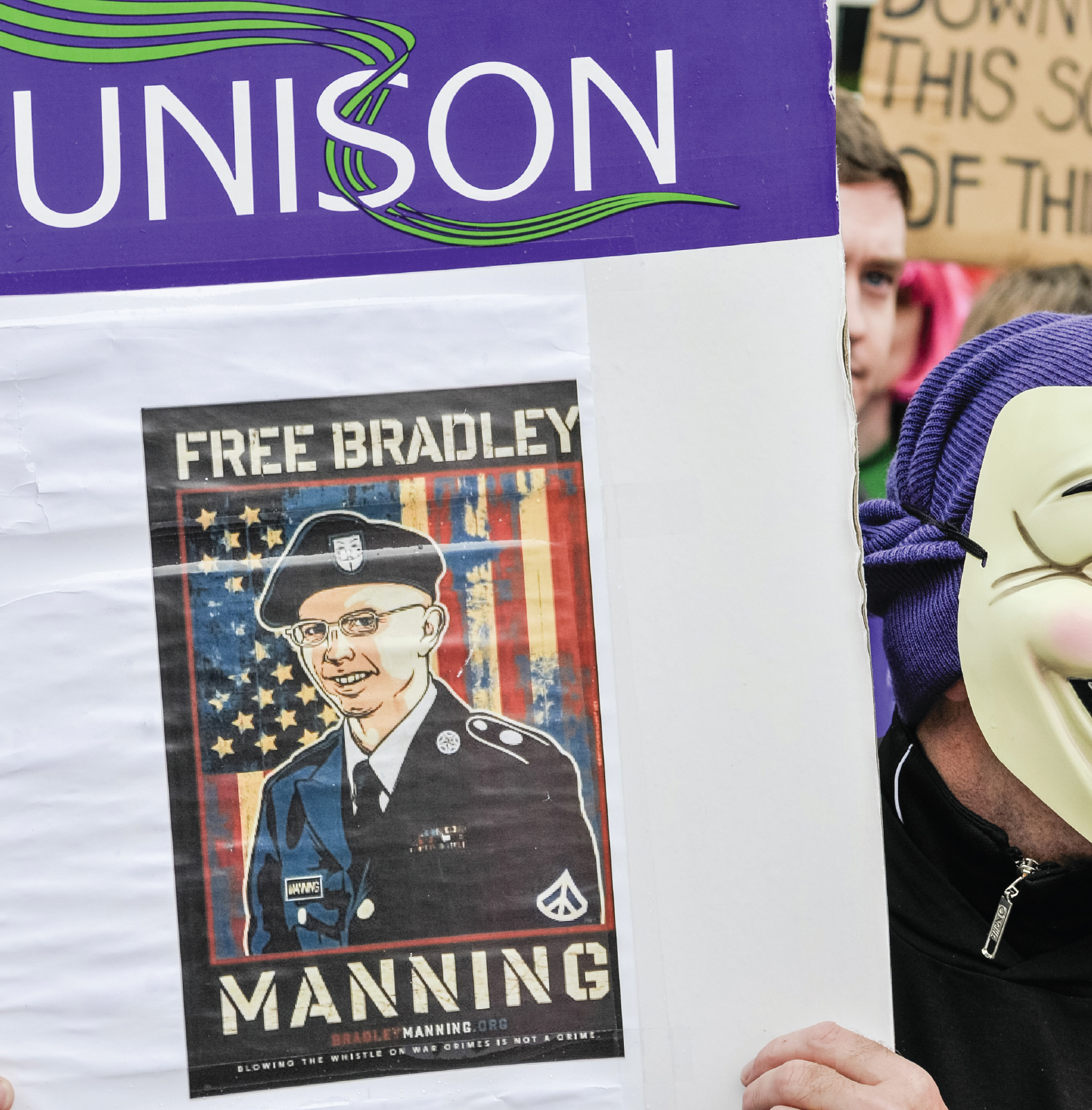Introduction
| Extended Case Study |
Patriot or Traitor? Unveiling Government Surveillance of Us
“The combination of increasingly advanced technology with a breakdown in the checks and balances that limit government action could lead us to a surveillance state that cannot be reversed.”
U.S. SEN. RON WYDEN (D-OR), 2013

In the past few years, there have been two extraordinary cases in which employees of the U.S. federal government have leaked classified information to the public.
579 Step 1: Description
580 Step 2: Analysis
581 Step 3: Interpretation
581 Step 4: Evaluation
582 Step 5: Engagement
In the first case, Pvt. Bradley Manning,1 an Army intelligence analyst assigned to a unit based in Baghdad, Iraq, was arrested in 2010 for transmitting classified information (including U.S. airstrike videos, more than 500,000 army reports, and more than 250,000 diplomatic cables) to WikiLeaks and a few news organizations. In 2013, Manning, age twenty-five, was sentenced to up to thirty-five years in prison for offenses that included violations of the Espionage Act.
In the second case, Edward Snowden, a twenty-nine-year-old computer system administrator working for government contractor Booz Hamilton and a former employee of the Central Intelligence Agency (CIA) and the National Security Agency (NSA), leaked details of U.S. and British government domestic surveillance programs, including Internet surveillance and collection of supposedly private data, to the news media in May 2013. By the next month, the U.S. government had charged Snowden with violations of the Espionage Act and theft of government property. Snowden fled to Hong Kong, and as of this writing had found temporary asylum in Russia.
Americans have split on their opinions of Manning and Snowden—they are either great patriots or horrible traitors.2 But it’s likely that most people aren’t certain of exactly what Manning and Snowden leaked and the impact of what they leaked.
It’s already clear what the U.S. government thinks of Manning and Snowden: Manning is in jail and Snowden is on the run, first to Hong Kong, and then to Russia. But, Andrew J. Bacevich, a former Army colonel and a professor of history and international relations at Boston University, suggests that the interests of the federal government and its institutional authority aren’t always aligned with the interests of the American people. He asks, “To whom do Army privates and intelligence contractors owe their loyalty? To state or to country? To the national security apparatus that employs them or to the people that apparatus is said to protect?”3
 THUS, THE DISCLOSURE OF STATE SECRETS TO THE PUBLIC PRESENTS AN IMPORTANT ETHICAL QUESTION. Do any leaks of classified information automatically put our national security at risk, or do those leaks sometimes do good by revealing a smokescreen of secrecy by which the state, in Bacevich’s words, “pursues its own agenda [and] stealthily but inexorably accumulates power, privilege and prerogatives”?
THUS, THE DISCLOSURE OF STATE SECRETS TO THE PUBLIC PRESENTS AN IMPORTANT ETHICAL QUESTION. Do any leaks of classified information automatically put our national security at risk, or do those leaks sometimes do good by revealing a smokescreen of secrecy by which the state, in Bacevich’s words, “pursues its own agenda [and] stealthily but inexorably accumulates power, privilege and prerogatives”?
For this case study, we will look at one of these complicated cases—the case of Edward Snowden and the NSA’s surveillance programs—to critically analyze the heart of the ethical dilemma: Is this case about a traitor undermining the state, or a whistleblower providing a check on excessive and unaccountable state power?
As developed in Chapter 1, a media-literate perspective involves mastering five overlapping critical stages that build on each other: (1) description: paying close attention, taking notes, and researching the subject under study; (2) analysis: discovering and focusing on significant patterns that emerge from the description stage; (3) interpretation: asking and answering the “What does that mean?” and “So what?” questions about your findings; (4) evaluation: arriving at a judgment about whether something is good, bad, poor, or mediocre, which involves subordinating one’s personal views to the critical assessment resulting from the first three stages; and (5) engagement: taking some action that connects our critical interpretations and evaluations with our responsibility as citizens.